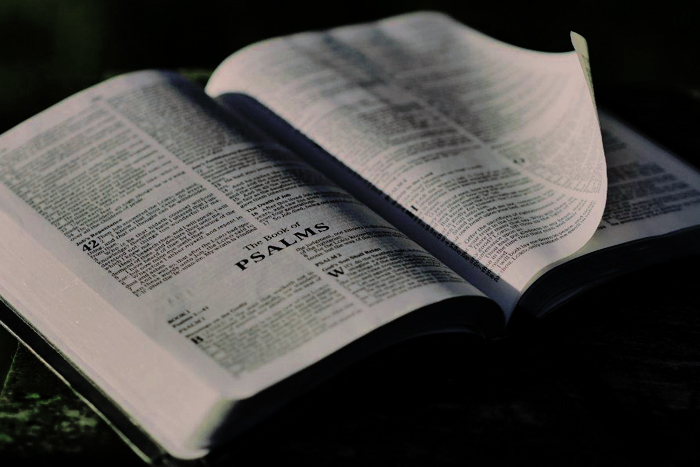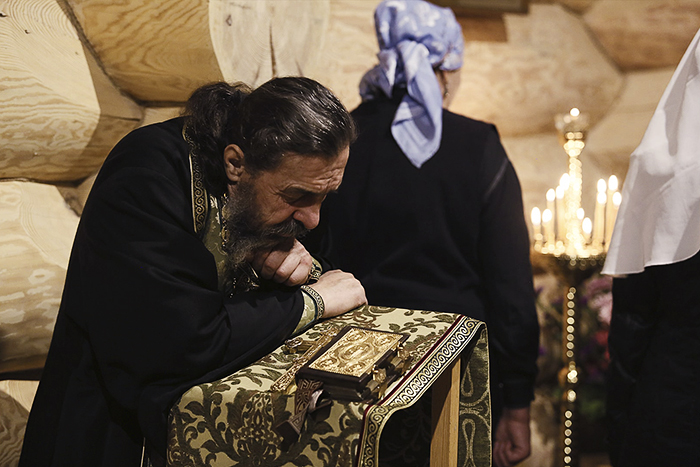
“Remember the Sabbath day,” or, in layman language, “you can’t work on holidays,” is perhaps the most “popular” commandment both in the church environment and beyond. As expected, the average reference frame in this question balances between extremes like “you can’t shave on Sunday” and “it’s not a sin to work, it’s a sin not to work.”
Paradoxically as it may seem, conscious ecclesiasticism is of little help here. I remember while studying at the seminary, I was a librarian, and my duties, among other things, included an annual check of the library stock. It took place in the summer when the seminary was on vacation, and its success depended on my ability to collect all the books on hand. Since there were many local parishioners among the readers, informing them about the need to turn in the literature was done through announcement notices. So, one fine April Sunday, my friend and I got busy posting stickers. At the end of that endeavor which was far from exciting, we were at the very last notice board, when two guys who were also the Lavra parishioners approached us and asked about the library and the book-check. The guys were listening to our story and watching my friend briskly cut the notice cards, printed several pieces on one sheet, as one of them remarked reproachfully: “Why on earth would you guys want to be cutting anything with scissors on Sunday”? I was about to smile politely in response to the awkward joke, however, meeting my interlocutor’s eyes I realized that he wasn’t at all joking. A second later the guys continued on their way, and we went to the seminary. At that point, I could not understand what was wrong with our actions, but over time I learned that many people, especially in rural areas, are convinced that on Sundays and holidays they cannot do quite simple and harmless things for themselves: cut with scissors, shave, cut nails, visit a hairdresser and, as funny as it may seem, even wash.
That appears even harder to believe given the Sabbath commandment is beyond clear and simple. It is elementary and so explicitly stated that it does not even need any explanation. However, since there seems to be an urgent need, it would not hurt to explain.
So, “Six days you shall labor and do all your work,” (Exodus 20:9). On the one hand, any activity, any action, and any deed can easily be attributed to “all deeds”. On the other hand, let’s note the fact that “all deeds” are opposed to the God-pleasing celebration of the holiday. Consequently, they are prohibited not because they are inappropriate on a particular day, but because they can hinder the pious mode of that holiday, taking away time or energy and distracting attention from prayer, reading Scripture, thinking of God, etc. A few moments spent cutting paper, sewing on a button, or tightening several nuts will in no way interfere with the feast day. What really gets in the way is the usual, routine, everyday work that takes much time and energy. Any work that turns a day of rest into a working day is definitely prohibited by the commandment. At the same time, there are no and there cannot be any kind of index listing things that can or cannot be done on Sundays and holidays. In that respect, expressions like “no knocking” or “no cutting with scissors on holidays” are meaningless.
What about household chores? They do take up a lot of time, but on the other hand, we cannot do without them. Cooking, daily cleaning, and other household chores are routine for any housewife. Here, I think, it will be useful to remember the words of the Lord: “Doesn’t each of you on the Sabbath untie your ox or donkey from the stall and lead it out to give it water?” (Luke 13:15) Note that Christ speaks of the household chores that are customary for his time, and even surrounded by fanatical zealots of the Sabbath, He sounds like He is speaking of obvious things. That makes perfect sense today also. Saturday or not, the cattle need food and water. That answers the question about daily chores. They are essential and therefore not regulated by the commandment. Surprisingly even the simplest housework includes activities (such as doing laundry, for example) that some still consider unacceptable. Many church-goers as well as “secular” people live in the conviction that it is untenable to do laundry on holidays. Practicing such a belief usually makes them look funny. A hapless zealot stubbornly refuses to use the washing machine on certain days, apparently seeing no difference between pressing several buttons on the washing machine and doing laundry the way it was done centuries ago (going to the river with washing boards). Meanwhile, if the occupation does not require any labor and does not take up time at all, what kind of violation of the commandment can we talk about? I think it’s unnecessary to mention personal hygiene procedures here as well. We need to brush our teeth, take a shower, and shave at least daily. You will agree that a person who is fresh as a daisy on weekdays and yet comes to church unshaven on Sunday, appears no less than bewildering.
Still, there is more to it. There are life situations when long and tiring work on Sundays and holidays is not only righteous but also directly obligatory. These are the cases of helping the neighbor. If our neighbor needs help, and there is no opportunity to wait until Monday, we need to help if we are near. I would hardly begin to chop wood for my fireplace on Sunday, rightly considering it a sin. But helping my elderly neighbor with the same wood-chopping would be my obligation as a Christian, be it Sunday, holiday, or even Easter because my neighbor can only hold an axe in his hands on rare days when his health allows him, which is no more often than three times a month.
Doesn’t it seem to you however that the more we analyze all sorts of things that we can or cannot do on a holiday, the further we move away from the main thing being the Liturgy? As the centerpiece of any church celebration, the Liturgy fulfills a festive day. And, again, talking about things that we can or cannot do, it is very important to remember what we need to do. Indeed, without participation in the Liturgy, even complete inaction will not help us fulfill the commandment about the Sabbath day, possibly, because it was given to us so that we “keep it holy”, rather than just sit back waiting for a reward from God for doing nothing.
Translated by The Catalogue of Good Deeds
Source: https://pravlife.org/ru/content/chto-pravoslavnym-mozhno-delat-v-prazdniki-chego-nelzya





I don’t agree with him